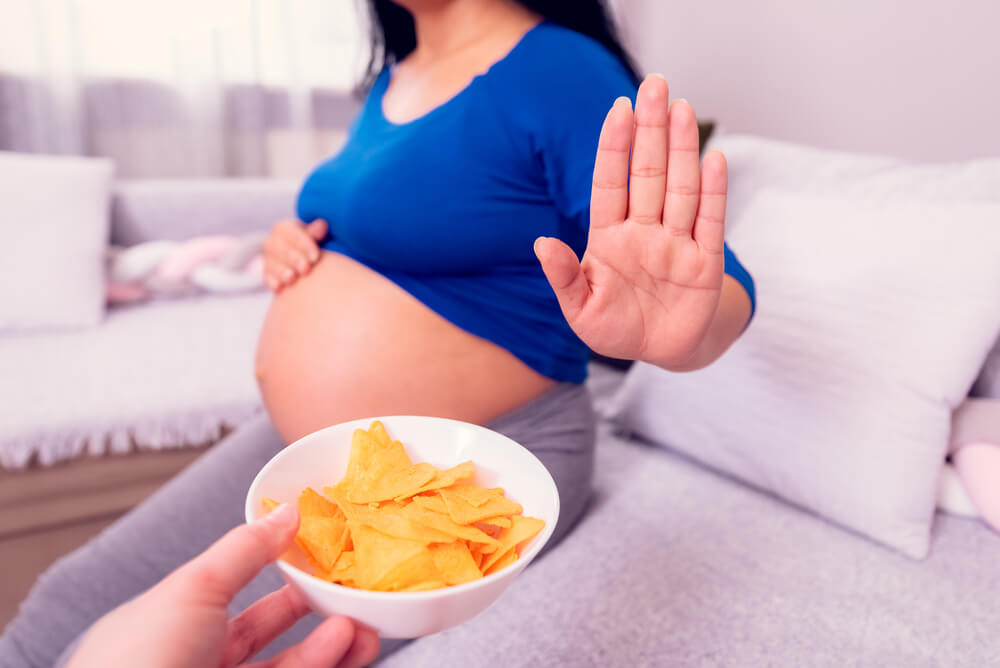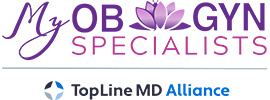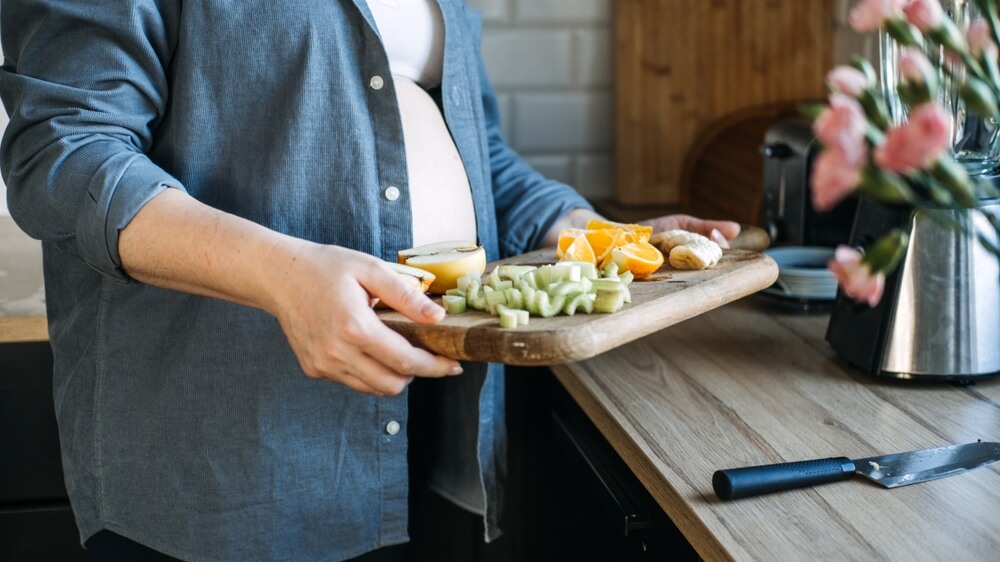Embarking on the journey of pregnancy brings about a myriad of changes, not only to one’s body but also to dietary habits. Understanding what foods to avoid during pregnancy is crucial for ensuring a healthy and safe gestational period, so today, you will get the opportunity to read about the essential aspects of pregnancy nutrition, shedding light on specific foods to steer clear of for the well-being of both mother and baby.
Medical professionals are educated and trained to support patients with their struggles, concerns, and questions, so talking about healthy pregnancy nutrition is definitely a crucial conversation you should have with your chosen doctor. At My OBGYN Specialists, you will be able to find suitable medical staff who will be able to offer support and guidance when talking about pregnancy, diet, and health in general.
The Importance of Pregnancy Nutrition

The importance of pregnancy nutrition cannot be overstated, as it lays the foundation for the health and well-being of both mother and baby. During pregnancy, the body undergoes profound changes, requiring an increased intake of essential nutrients to support fetal development and sustain the mother’s health. Adequate levels of folic acid, iron, calcium, and other vital nutrients become imperative for preventing birth defects, supporting blood production, and ensuring proper bone development.
Beyond physical health, pregnancy nutrition plays a pivotal role in influencing cognitive development and long-term health outcomes for the child. A well-balanced and nutrient-rich diet during pregnancy not only reduces the risk of complications but also sets the stage for a healthier postpartum recovery. Therefore, prioritizing optimal nutrition during pregnancy is a cornerstone for fostering a thriving and resilient maternal and fetal journey.
Foods to Avoid During Pregnancy: A Closer Look
Although previously mentioned, it is important to emphasize once again that when it comes to pregnancy, it is important to be mindful of your diet for the health and well-being of both you and your baby. While there are many nutritious foods that support a healthy pregnancy, there are also certain foods that should be avoided due to potential risks. Here is a closer look at some of the foods to avoid during pregnancy:
- Raw or Undercooked Seafood and Shellfish: Uncooked or raw seafood, such as sashimi, raw oysters, or sushi, may contain harmful bacteria and parasites that can lead to foodborne illnesses. It’s crucial to ensure that all seafood is fully cooked to eliminate these risks.
- High-Mercury Fish: Some fish, particularly large predatory fish, may contain high levels of mercury, which can be harmful to the developing nervous system of the fetus. Avoid shark, swordfish, king mackerel, and tilefish. Instead, choose low-mercury options like salmon, shrimp, and catfish.
- Raw or Undercooked Eggs: Raw or undercooked eggs can carry the risk of salmonella infection. Avoid foods that use raw or partially cooked eggs, such as homemade Caesar salad dressing, mayonnaise, and raw cookie dough.
- Unpasteurized Dairy Products: Unpasteurized milk and dairy products may contain harmful bacteria such as Listeria, which can lead to serious complications during pregnancy. Opt for pasteurized dairy products to reduce the risk of contamination.
- Soft Cheeses: Certain soft cheeses, like feta, brie, camembert, and blue cheese, may be made with unpasteurized milk and can harbor harmful bacteria. Choose only cheeses that are made from pasteurized milk.
- Caffeine: Drinking caffeine during pregnancy can be an option, but only if we are talking about moderate caffeine consumption. This is generally considered safe during pregnancy, but excessive intake should be avoided. High levels of caffeine have been linked to an increased risk of miscarriage and low birth weight. It’s advisable to limit caffeine intake to around 200-300 milligrams per day.
- Alcohol: Alcohol can have harmful effects on the developing fetus, leading to conditions like fetal alcohol syndrome. It’s best to avoid alcohol entirely during pregnancy to ensure the health of the baby.
- Processed Meats: Processed meats such as deli meats and hot dogs may be contaminated with Listeria. To reduce the risk, heat these meats until they are steaming hot before consumption.
- High-Sugar and Low-Nutrient Foods: Foods high in added sugars and low in nutrients can contribute to excessive weight gain and may increase the risk of gestational diabetes. Focus on a balanced diet with whole foods to meet the nutritional needs of both mother and baby.
- Excessive Vitamin A: While vitamin A is essential for fetal development, excessive intake can be harmful. Avoid supplements that contain high levels of vitamin A, and be mindful of foods rich in this vitamin, such as liver.
Always consult with your healthcare provider for personalized advice based on your individual health needs and circumstances. Following a well-balanced and nutritious diet is crucial for a healthy pregnancy, and avoiding potential risks can contribute to a positive outcome for both mother and baby.
Mercury During Pregnancy: A Concern for Seafood Enthusiasts
The topic of consumption of mercury during pregnancy is important so we wanted to make sure that it is elaborated more in depth in today’s blog post. Mercury is a heavy metal that can adversely affect the developing nervous system of the fetus. Certain fish, such as sharks, king mackerel, swordfish, and alike, are known to contain high levels of mercury. It is advisable to limit the consumption of these varieties and opt for low-mercury alternatives like canned light tuna, salmon, and catfish.
Navigating the Pregnancy Diet: A Wholesome Approach
Crafting a well-rounded pregnancy diet involves incorporating a variety of nutrient-rich foods to meet the increased nutritional demands. Essential nutrients such as folic acid, iron, calcium, and vitamin D play pivotal roles in supporting the health of both mother and baby.
Practical Tips for a Healthy Pregnancy Diet

Here are some practical tips that might help you make well-informed choices during your pregnancy:
- Diversify your plate – Include a colorful array of fruits and vegetables to ensure a broad spectrum of vitamins and minerals. These foods provide essential nutrients and antioxidants crucial for fetal development.
- Lean proteins for optimal growth – Incorporate lean protein sources such as poultry, fish, beans, and tofu to meet the increased protein requirements during pregnancy. Proteins are vital for the healthy development of the baby and its organs, tissues, and muscles.
- Whole grains for sustained energy – Choose whole grains like brown rice, quinoa, and oats to provide sustained energy and a good dose of fiber. Fiber helps alleviate common pregnancy discomforts like constipation.
Conclusion
Navigating the landscape of foods to avoid during pregnancy is an integral part of maternal care. Prioritizing a balanced pregnancy diet, steering clear of potential hazards like mercury, and being mindful of caffeine intake contribute to a healthier gestational journey. By embracing a wholesome approach to nutrition, mothers can lay the foundation for a vibrant and robust future for both themselves and their little ones.
If you are still left with questions and concerns, please reach out to us today and schedule a consultation with our professional team. Your health is our number one priority, so do not hesitate to call.


